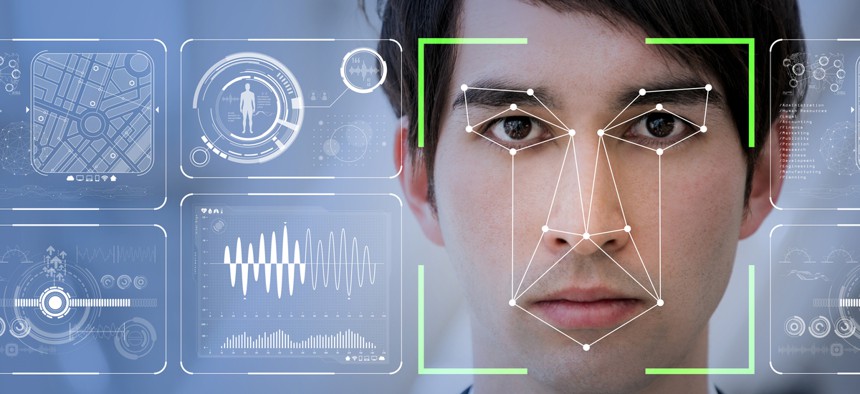Facial Recognition Bill Would Ban Companies From Sharing Your Face Without Consent

metamorworks/Shutterstock.com
A bipartisan bill introduced this week would strengthen consumer protections around facial recognition technology.
Your face may be one in a million, but there are little to no consumer protections regarding how companies using facial recognition technology share your face and other information they capture about you.
Bipartisan legislation introduced in the Senate Thursday would change that, banning commercial users of facial recognition technology from collecting, resharing or selling data they collect for identifying or tracking consumers without their consent.
Introduced by Sens. Roy Blunt, R, Mo. and Brian Schatz, D-Hawaii, the Commercial Facial Recognition Privacy Act would also force companies to notify users when facial recognition is being used and would require third-party testing and review of new technologies before they’re widely implemented.
“Consumers are increasingly concerned about how their data is being collected and used, including data collected through facial recognition technology,” Sen. Blunt said in a statement. “That’s why we need guardrails to ensure that, as this technology continues to develop, it is implemented responsibly.”
Sen. Schatz, who has sponsored several privacy- and tech-related bills, said the responsibility should be “on companies” to seek permission from users before they track and analyze their faces.
“Our bill makes sure that people are given the information and–more importantly–the control over how their data is shared with companies using facial recognition technology,” Schatz said.
The proposed legislation comes as at least one nationwide survey suggests Americans are warming to facial recognition technology and increased use of the technology by multiple government agencies. The FBI began piloting Amazon’s Rekognition technology last year, and the Department of Homeland Security has used the technology at multiple airports and border crossing areas to apprehend more than two dozen people who were not who their paperwork said they were.
The bill already has at least some push back in the tech space. The Information Technology and Innovation Foundation, a Washington, D.C.-based nonpartisan research organization, released a statement Friday suggesting such legislation could stifle the technology before its potential is reached.
“This legislation is too much, too soon,” said Information Technology and Innovation Foundation Vice President Daniel Castro, in a statement.
“Facial recognition is a rapidly evolving technology that offers numerous potential benefits, including faster and more secure check-in, personalized services, and more security. But these applications are still in their infancy, and this legislation would limit many potential commercial applications,” he said.






